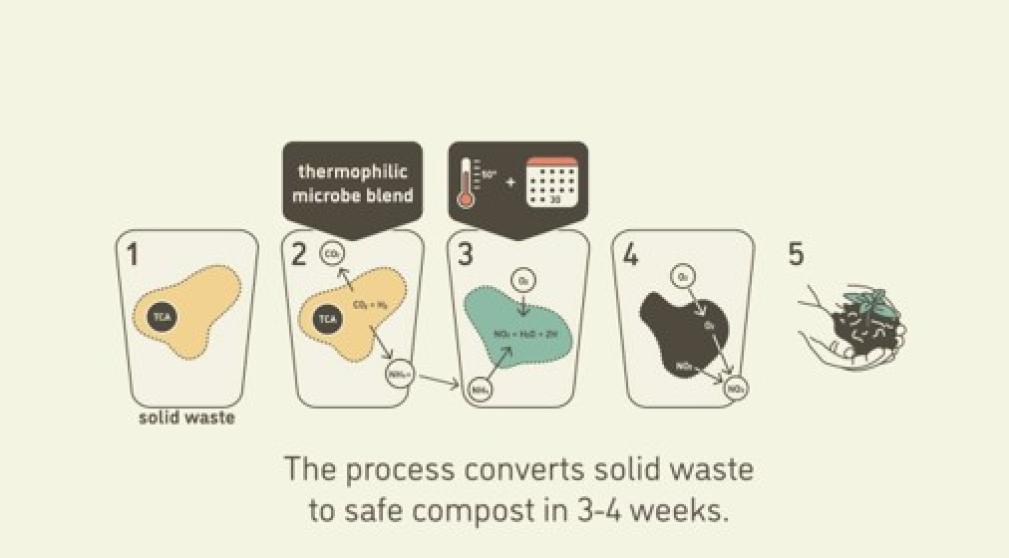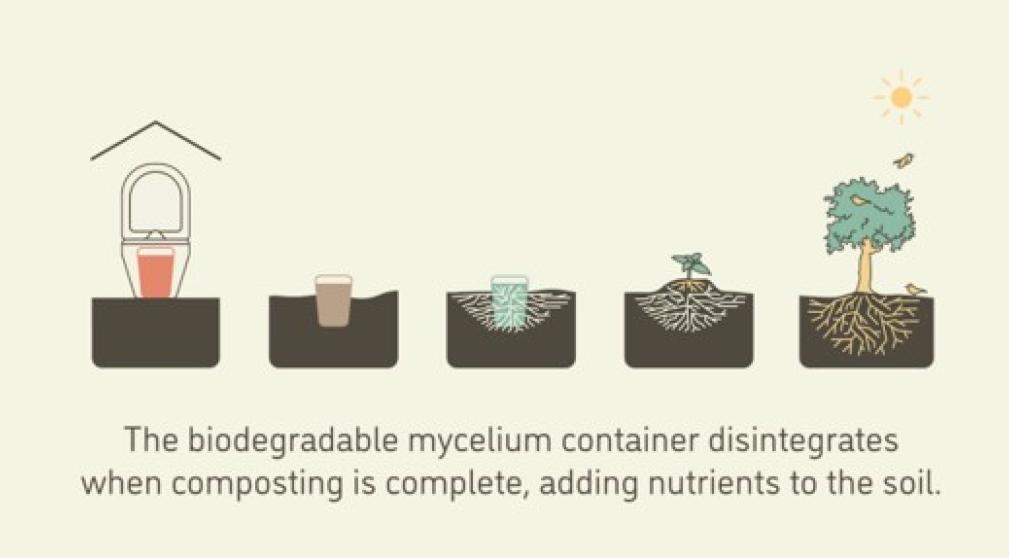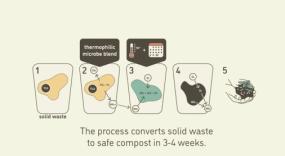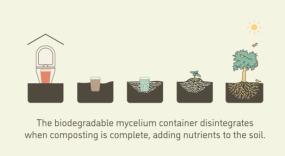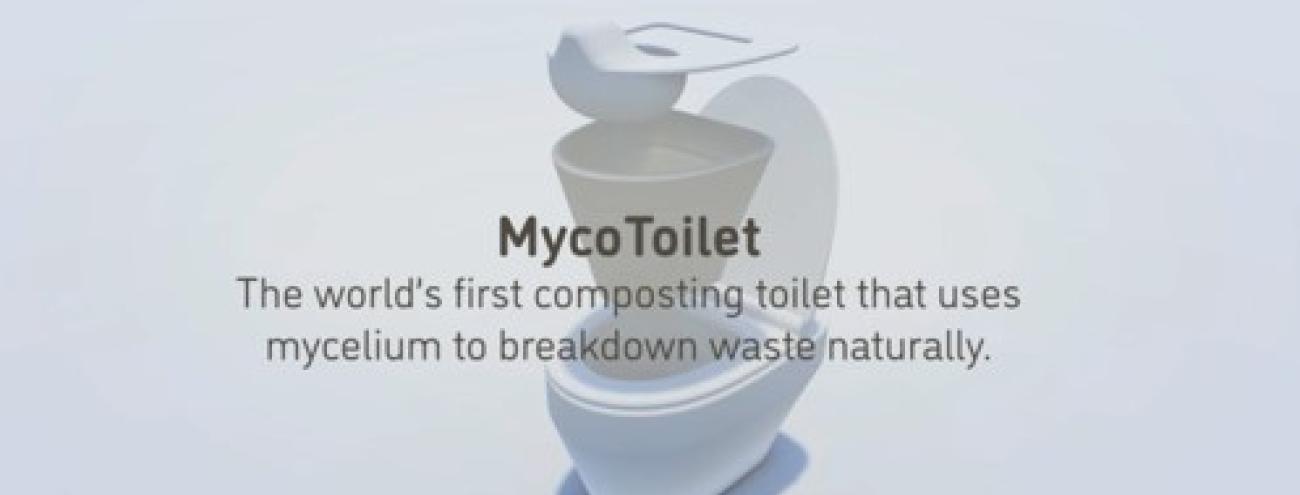
MycoToilet: Demonstration of a Mycelium-Based Composting Toilet Sustainable Places & Communities
Using mushrooms in a composting toilet, the MycoToilet is an innovative research project with the potential to revolutionize distributed waste treatment in remote and water-scarce locations.
Project Team
Joseph Dahmen, Associate Professor, Faculty of Applied Sciences
Daniel Mosquin, Research Manager, UBC Botanical Garden
Steven Hallam, Professor, Department of Microbiology & Immunology
Chris Moraes, Canada Research Chair in Advanced Cellular Microenvironment, Department of Chemical Engineering, McGill University
Lorena Polovina, Master of Architecture candidate, SALA
Isobel Mclean, Master of Architecture candidate, SALA
Untreated human waste is a leading cause of disease and mortality among the 2.3B people who lack access to adequate sanitation globally1. Current centralized approaches to waste treatment are energy intensive and require significant amounts of water. While decentralized approaches, such as chemical toilets, reduce energy and water use, they require toxic chemicals which create economic, operational and disposal challenges. Researchers at UBC have been working on the development of a fully biodegradable process for composting toilets that speeds the decomposition of waste and eliminates the need for energy and chemical inputs.
The MycoToilet is an innovative composting toilet that uses mushroom (mycelium) biocomposites with thermophilic microbes that can convert human waste to soil. While composting toilets are an established technology, the mycelium-based decomposition of harmful pathogens takes about half the time of traditional composting toilets, with minimal energy. Recent studies highlight that mycelium biocomposites can serve as sustainable alternatives for waste management due to their rapid biodegradation and pathogen resistance2.The project is an interdisciplinary collaboration between the UBC School of Architecture and Landscape Architecture and the Department of Microbiology & Immunology. The design for MycoToilet won the BioDesign Challenge, an international competition with entrants from over 300 universities, in 2018.
The MycoToilet project’s objective is to develop and conduct a field test of a working prototype at the UBC Botanical Garden. The on-ground demonstration of the working prototype will generate valuable data regarding the use and effectiveness of the toilet in a real-world setting and creates an opportunity to reduce operational dependency on biocides and other toxic chemicals at UBC. The team will address health and safety regulations and requirements as part of the project. Waste collected in the composting toilet will be closely monitored, with fully treated soil products rigorously tested to verify safety and assess reuse options, including future possibilities at the Botanical Garden.
The MycoToilet has the potential for broad applications for on-site, waste treatment in rural communities, refugee camps, natural disasters and other locations lacking water and waste treatment infrastructure.
